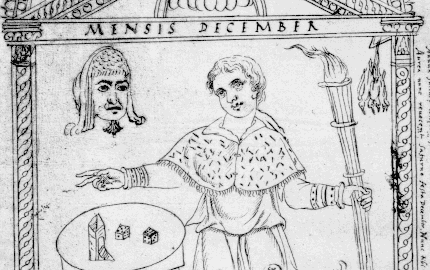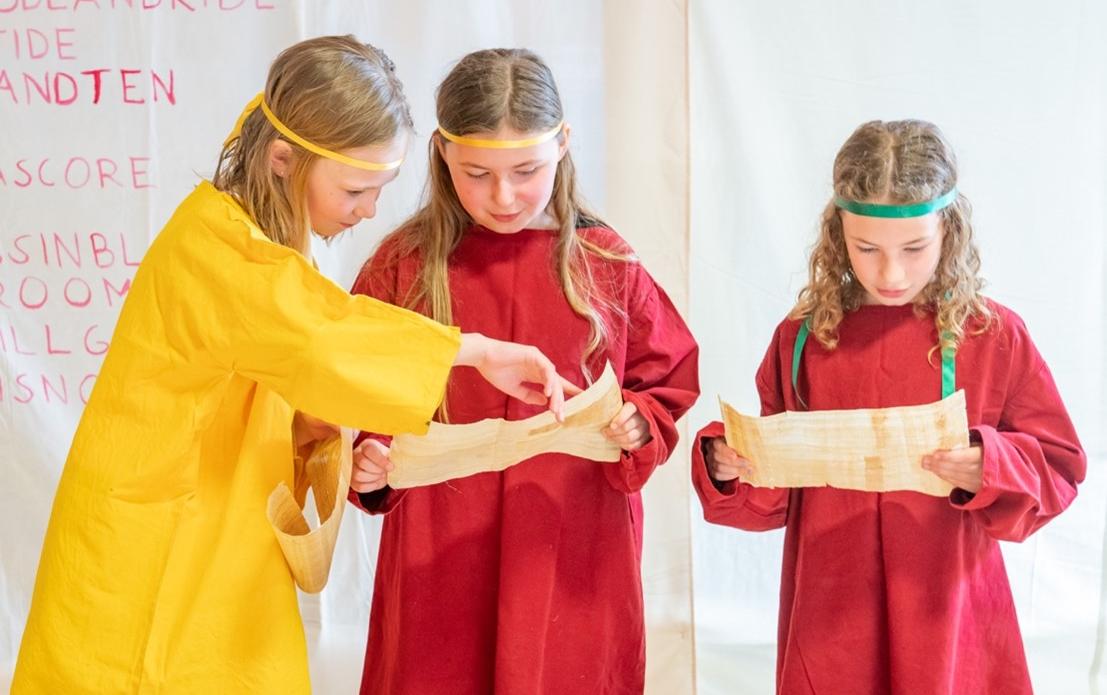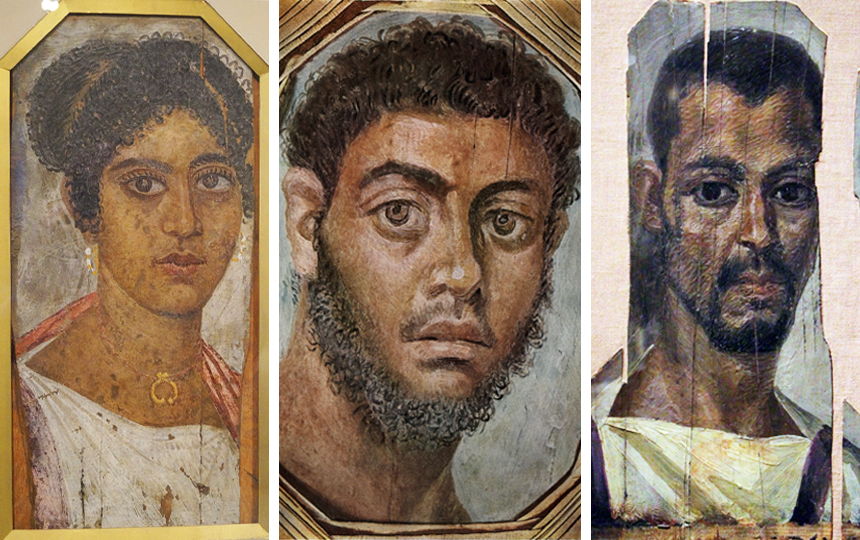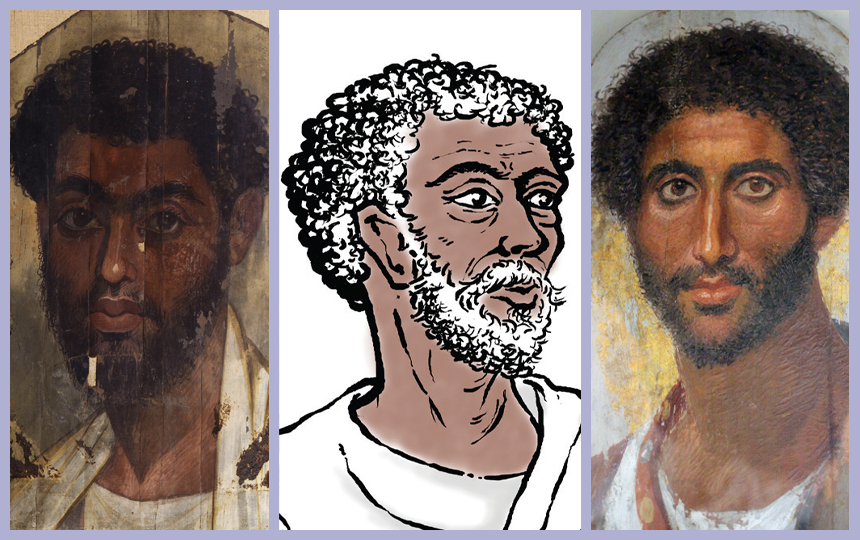Director Caroline Bristow addresses the importance of inclusion to the core mission of CSCP: ensuring that Classics flourishes in classrooms. This article also introduces the theme of race and decolonisation which will be the focus of this blog’s opening series of posts.
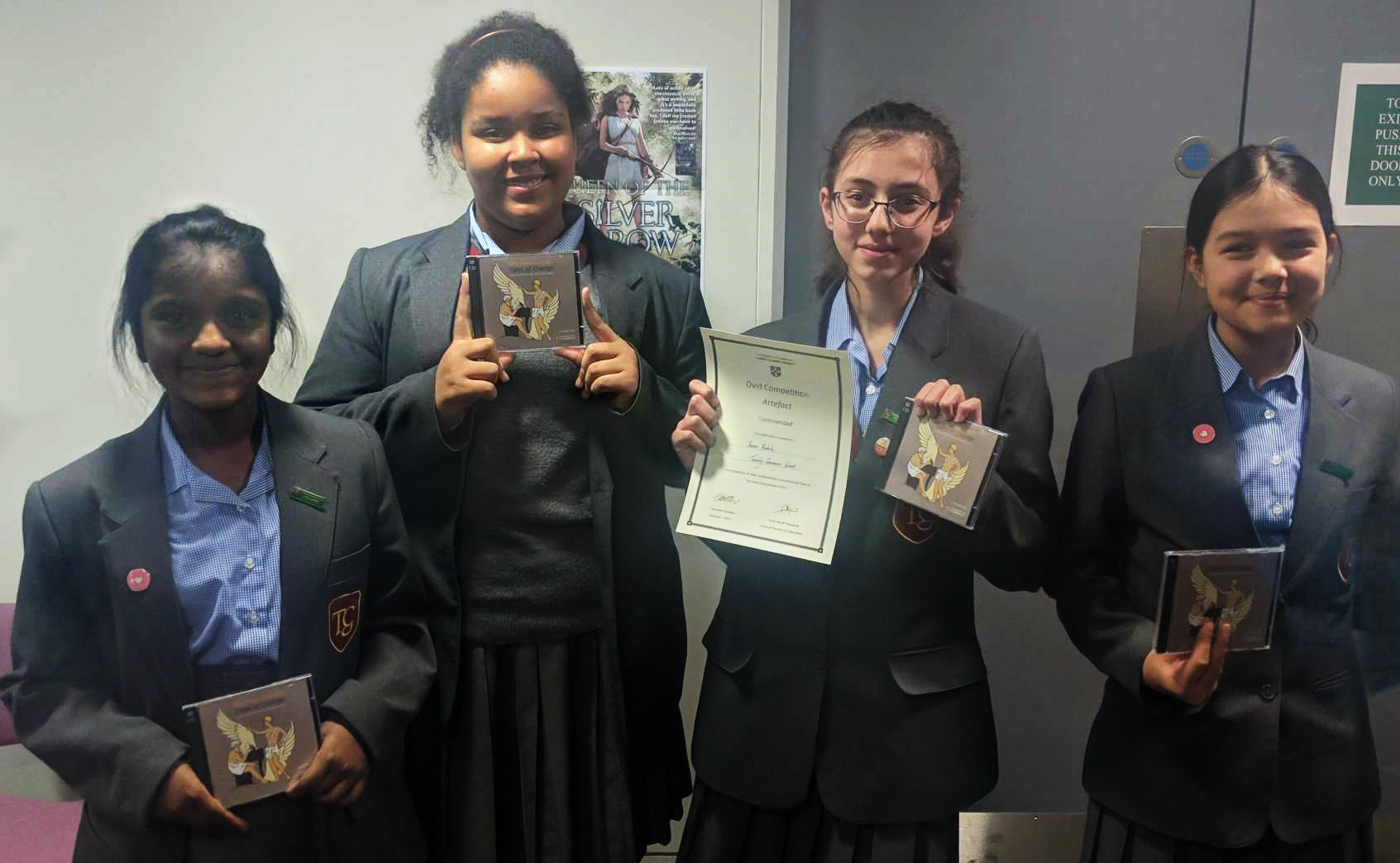
Submitted by Anonymous on Tue, 01/09/2020 - 13:00
Susan Hadaki, Kiruthiga Koneswaran, Hanifa Izzatillaeva and Nia Smith of Townley Grammar School at the Cambridge School Classics Project's Ovid Competition.
The first CSCP Bulletin (Towards a New Latin Reading Course) spoke in terms of the “widely varying levels of pupil ability”, but today we acknowledge myriad factors which may lead to students questioning whether they have any place in a Classics classroom. Over the years CSCP has diversified its projects, reaching a wide range of students in different classrooms with different needs. The young women pictured above were introduced to stories from Ovid's Metamophoses via our Classic Tales materials and Ovid Competition. These initiatives promote creative personal engagement with the stories and make the classical world accessible to students who may not have the opportunity to study Latin at all. If Classics isn’t a welcoming space for all students, then CSCP’s remit of keeping the subject alive becomes orders of magnitude more difficult. Addressing issues of inclusion simply must be central to a modern and future-facing CSCP.
Included among these issues are those of gender, LGBTQIA+, class, and perceived academic ability. Due to recent events and circumstances, however, we have chosen to launch our new blog with a series of posts specifically tackling race and decolonisation in Classical scholarship and the classroom.
***
In her article Classics makes me happy. Is that enough? Helen Wong expresses her doubts about selecting Classics as her course of study:
“I was hesitant to study Classics because I didn’t think I would ever really have a place studying something I thought was made by white people for white people.”
That this description of Classics would resonate with many Classicists of colour can be evidenced with even a cursory Google search (Eidolon provides a range of excellent examples). US Latin teacher John Bracey has written and spoken with great passion about Why students of color don’t take classics, highlighting the unfortunate truth that “It is easy for even the most well-intentioned Latin teacher to inadvertently alienate students of color”.
Classical accessibility and relevance isn’t just about the subject’s survival, vital though this may be. Nor is it about the (considerable) moral imperative to provide all students with equal educational opportunities. It’s about the health of the subject itself. Those who are concerned about “academic standards” should be worried about accessibility and inclusion; diversity is essential for Classics to flourish. Every student who turns away from Classics because it’s “not for them” is one whose voice and ideas will not contribute to, and enrich, our discipline. Their loss freezes Classics in a self-perpetuating cycle of exclusivity and whiteness, a view which is not only limited but also does not reflect the Ancient World we study. A homogenous field simply will not produce innovative and rigorous work.
The health and accessibility of Classics education become even more important when one considers that Classics has been used to underpin movements and messages abhorrent to most Classicists. Donna Zuckerberg’s recent book “Not all Dead White Men” tackled the appropriation of Classical texts by the online “Red Pill” community, and what Dan-el Padilla Peralta refers to as “white supremacists strip-mining the classics” is well documented. Classics as a discipline must proactively reject such abuses of its material, and access to Classics education is essential in tackling this. If the first encounter students have with Classics emphasises diversity and critical engagement with the past, they are less likely to be susceptible to ideas espoused by those who are appropriating the material for their own ends.
***
But how to achieve this forward looking and inclusive discipline? Again to quote John Bracey “Along with how we teach, we must also reexamine what we teach in our classes.” We know that representation matters. We understand that “when students don’t see themselves reflected in their classroom curriculum, it gives them the impression that they are not valued”; they need to feel that they belong. If we marginalise voices of colour, fail to demonstrate Classics’ place in a global context, and do not apply critical thought to the ideological reasons for which the discipline has ended up in this position we will continue to exclude students of colour.
In a panel entitled The Future of Classics at the 2019 Society for Classical Studies Dan-el Padilla Peralta was subject to racist comments. His thoughts on the incident make for humbling reading, but one comment stood out to me:
"Most of all, I will remember the rage: not the impotent rage of [the commenter], but my rage on realizing that her personal assault would divert attention from the paper I had just delivered on the whites-only neighborhood of journal publication in classics."
Dan-el had just discussed publication statistics for Classical scholarship which showed the extent to which the vast majority of authors are still white. And he’s right. The message that scholars of colour need to be given due acknowledgement and prominence is too important to be overshadowed by such an outburst. Dan-el was due to give a variation of this paper at a CSCP-convened panel at the Classical Association conference in the UK in 2020 before Covid-19 forced cancellation.
Publication bias is one example of a structural issue holding the field back. Whilst most of us are not journal editors or gatekeepers on a large scale, we do have power to create change in our own sphere of influence. We can all find ways to amplify and value Black and other voices of colour. For teachers this includes proactively searching out Black and other scholarship of colour when creating reading lists and resources for your classroom. At CSCP we have made a commitment to ensure diversity of authorship in the scholarship we promote via this blog and our materials. This is a matter of justice for individual scholars as well as ‘the people whose communities have historically been denied access to its study—and whose communities have been on the receiving end of violence perpetrated by those drawing their inspiration from such study’; but it is also a matter of pedagogy. Students of colour should be able to envisage themselves contributing to the discipline and being valued in those contributions. Otherwise how can we expect them to feel they have a place with us?
We also want to ensure students are introduced to the place of Classics in the global context: the role of north Africa in the shaping of Classical Literature, and simultaneous erasure of Africa from the Classical canon; the importance of studying the Persians in their own right, not only as a way for the Greeks to prove their worth; the misconception of a Western rational medicine at odds with Eastern superstition and magic; the problem of teaching that some slave masters were “good” and some slaves “lazy”; challenging the idea that the Romans “civilised” through conquest.
We hope the articles in this blog provide a starting point for teachers and students to think about Classics both in and out of the classroom, and the role Classics education can play in shaping the future of our discipline. Fifty years on, we still want our subject to flourish, and this means continuing to reflect, research and act to promote an accessible and just Classics.
CSCP


